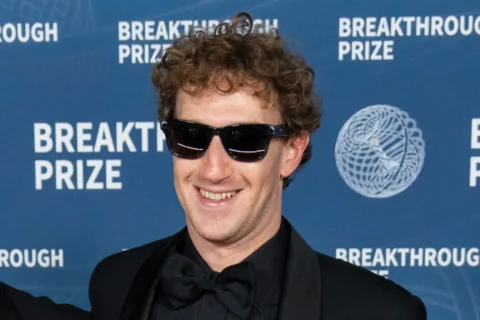Introduction
A brief exchange between tech heavyweights Jack Dorsey and Elon Musk has ignited a fierce debate around intellectual property (IP) law, creator rights, and the future of innovation. What began as a terse post on X (formerly Twitter) quickly spiraled into a weekend of spirited discussion across the tech community and beyond.
Understanding the nuances of this conversation is crucial for entrepreneurs, creators, and marketers navigating the rapidly evolving digital landscape. Let’s dive deeper into why this debate matters and what it signals for the future of innovation, ownership, and opportunity.

Credits: X
Jack Dorsey’s Bold Statement on IP Law
Jack Dorsey, co-founder of Twitter (now X) and Square (now Block), sparked the conversation with a provocative post simply stating:
“Delete all IP law.”
Elon Musk, the current owner of X and a vocal critic of traditional corporate practices, promptly responded with,
“I agree.”
Their comments arrived at a critical moment, as companies like OpenAI face mounting legal challenges for allegedly infringing on copyrighted works to train their AI models. This backdrop added fuel to an already sensitive topic regarding the balance between protecting creators and fostering technological advancement.
The Broader Context: AI, Copyright, and Legal Challenges
The discussion around IP law is increasingly relevant due to the surge in generative AI technologies. Lawsuits against companies such as OpenAI claim that AI model training often violates copyright protections—an issue that raises important ethical and legal questions.
Chris Messina, a noted tech evangelist and investor, pointed out that automated systems for handling IP infringement might eventually replace outdated, unjust criminal policies, drawing a stark parallel to past practices like the criminalization of cannabis possession.
However, others view Dorsey and Musk’s stance as a direct threat to creators’ rights, suggesting that dismantling IP protections could leave artists, writers, and innovators vulnerable to exploitation by powerful tech companies.
Supporters and Critics Respond
Support for Dorsey’s Viewpoint
Some voices within the tech community resonate with Dorsey’s sentiment. The argument here is that existing IP laws primarily benefit intermediaries—the so-called “gatekeepers”—rather than the creators themselves. Dorsey elaborated, claiming that
“the current models take too much from creators and only serve to rent-seek.”
He suggests that alternative models for compensating creators could be more equitable and promote greater creativity without stifling innovation.
Strong Pushback from Creators and Advocates
Conversely, prominent figures pushed back hard.
Ed Newton-Rex, founder of Fairly Trained, a nonprofit advocating for ethical AI training practices, accused Dorsey and Musk of waging “all-out war on creators.”
Writer Lincoln Michel pointed out the irony of Dorsey’s and Musk’s criticism, noting that their companies heavily rely on IP protections for success. He remarked,
“They just hate artists.”
Nicole Shanahan, attorney and former vice-presidential candidate, added that
“IP law is the only thing separating human creations from AI creations,”
urging for reform rather than abolition.
Dorsey and Musk’s History with Intellectual Property
Both Dorsey and Musk have long expressed skepticism toward the traditional IP system. Musk famously once called patents “for the weak” during an interview with Jay Leno. In 2014, Tesla announced a “patent pledge,” promising not to sue anyone who used its patents “in good faith.” However, Tesla later engaged in patent litigation, illustrating the complexities and contradictions in their approach.
Meanwhile, Dorsey’s involvement in open-source projects like Bluesky, which seeks to decentralize social media, further demonstrates his belief in freer systems. Interestingly, Dorsey ultimately left the Bluesky board, with CEO Jay Graber suggesting that his departure “freed up” the project from the perception of being a billionaire’s side hobby.
The Blurred Line Between Online Debates and Policy Influence
It’s important to note that social media debates between tech moguls like Musk and Dorsey can sometimes translate into tangible policy shifts. Musk, for example, has wielded influence at the governmental level, joining the Trump administration and spearheading initiatives such as the Department of Government Efficiency.
As discussions around IP law gain momentum, entrepreneurs and creators should pay close attention—not just for entertainment but because the outcomes could significantly impact their businesses and creative ventures.
At Trenzest, we understand how vital intellectual property is to growing businesses. Whether you’re launching an AI startup or developing original content, having a solid strategy for protecting and leveraging your IP assets is crucial.
Why This Debate Matters for Entrepreneurs and Creators
The discussion goes beyond theory—it touches real-world concerns. For startups, marketers, and independent creators, intellectual property can be both a shield and a sword. Protecting your work while staying innovative requires understanding the evolving landscape.
Key takeaways:
Stay informed: The IP environment is changing rapidly. Subscribe to credible resources like Trenzest’s blog to stay updated.
Evaluate your IP strategy: Regularly assess how your business handles trademarks, copyrights, and patents.
Explore new models: Be open to alternative approaches to protecting and monetizing your work.
Final Thoughts: The Future of IP in a Tech-Driven World
As AI reshapes creativity, commerce, and communication, the debate around intellectual property will only intensify. Leaders like Jack Dorsey and Elon Musk are challenging long-held assumptions, but the future remains unwritten.
Creators, entrepreneurs, and marketers must stay proactive—understanding these shifts is no longer optional. At Trenzest, we empower you to navigate this changing world, offering insights, strategies, and solutions tailored to modern business needs.




